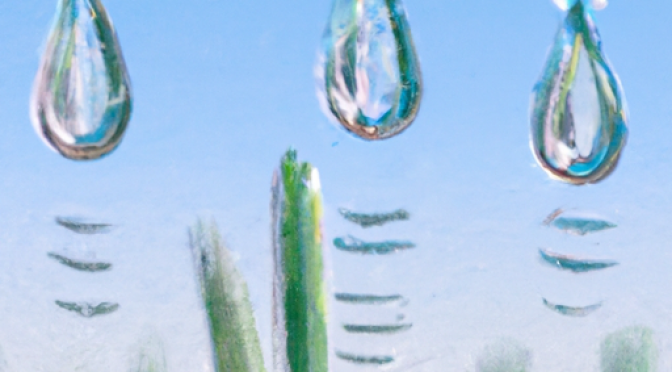Introduction
In recent years, the use of artificial intelligence (AI) tools has gained significant attention in various industries, including agriculture. One area where AI has the potential to make a significant impact is in the conservation of water resources. With the increasing global demand for food and the growing concerns over water scarcity, it is crucial to explore innovative solutions that can help optimize water usage in agriculture. This article will discuss how AI tools can aid in the conservation of water resources in agriculture.
1. Precision Irrigation
Precision irrigation is a technique that involves applying water precisely and efficiently to crops based on their specific needs. AI tools can play a vital role in optimizing precision irrigation systems. By analyzing data from various sources, such as weather patterns, soil moisture levels, and crop characteristics, AI algorithms can determine the optimal amount and timing of water required for each crop. This ensures that water is used efficiently, minimizing wastage and reducing the overall water footprint in agriculture.
2. Crop Monitoring and Management
AI tools can also aid in crop monitoring and management, enabling farmers to make informed decisions regarding water usage. Through the use of remote sensing technologies, such as satellite imagery and drones, AI algorithms can analyze crop health indicators, such as vegetation indices and thermal patterns. By detecting early signs of stress or disease, farmers can take proactive measures to address these issues, preventing water wastage on unhealthy crops. Additionally, AI-powered systems can provide real-time recommendations on irrigation scheduling, helping farmers optimize water usage based on crop conditions.
3. Predictive Analytics
Predictive analytics, powered by AI, can assist farmers in predicting water requirements and optimizing irrigation practices. By analyzing historical data, such as weather patterns, soil conditions, and crop yields, AI algorithms can generate accurate predictions on future water needs. This enables farmers to plan their irrigation schedules more effectively, ensuring that water is applied when and where it is most needed. By avoiding over-irrigation or under-irrigation, farmers can conserve water resources while maximizing crop productivity.
4. Water Quality Monitoring
Ensuring the quality of water used in agriculture is essential for both crop health and environmental sustainability. AI tools can help monitor water quality parameters, such as pH levels, nutrient concentrations, and contaminants. By analyzing real-time data from sensors installed in irrigation systems or water sources, AI algorithms can detect any deviations from optimal water quality standards. This enables farmers to take corrective actions promptly, preventing potential damage to crops and minimizing the risk of water pollution.
Conclusion
The conservation of water resources in agriculture is of utmost importance in addressing the challenges of water scarcity and sustainable food production. AI tools offer promising solutions to optimize water usage in agriculture through precision irrigation, crop monitoring and management, predictive analytics, and water quality monitoring. By harnessing the power of AI, farmers can make informed decisions, reduce water wastage, and ensure the efficient use of water resources, ultimately contributing to a more sustainable and resilient agricultural sector.

